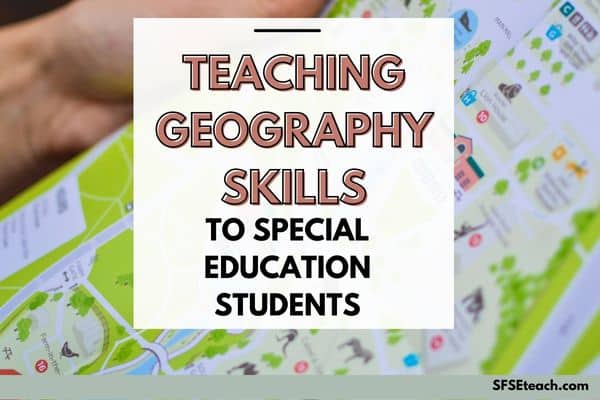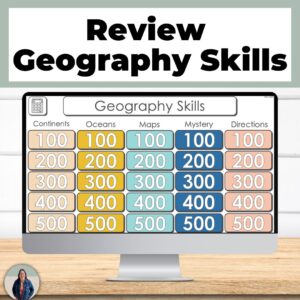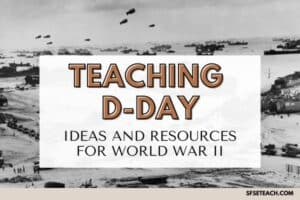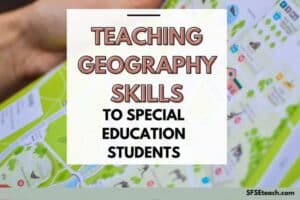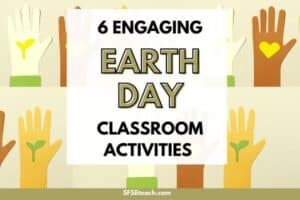Geography Skills
Geography skills involve the use of maps, globes, and other geographic tools to interpret information about the environment and the people who live in it. Some examples of geography skills include:
- Reading and interpreting different types of maps (thematic maps, topographic maps, physical maps, political maps…)
- Knowledge of physical and cultural features of the environment
- Understanding climate, weather, and natural hazards
- Ability to analyze and interpret data related to geography
- Awareness of global issues and the interconnectedness of the world
Keep reading for a free Geography Skills Jeopardy Game!

Geography is an essential subject that helps us understand the world around us, and it’s crucial that all students have the opportunity to develop their geography skills. This is particularly important for special education students, as geography education can have significant benefits for their academic and personal development. In this blog post, we’ll explore why you should teach geography skills to special education students.
Reasons to teach Geography Skills
- Practical skills and applications
- By focusing on practical applications, you can help students understand the relevance of geography. For example, you can teach students how to read a map to navigate their community or how to find information about different countries for a social studies project. By emphasizing the practical applications of geography, you can help special education students understand why it’s important to learn about the subject.
- Enhances social studies knowledge
- Understanding the world’s physical and cultural features is crucial to understanding history, economics, and politics. Geography can provide a hands-on, visual approach to learning about different cultures and historical events. By teaching geography, you can help special education students enhance their social studies knowledge and critical thinking skills.
- Promotes global awareness
- Geography education promotes global awareness and cultural sensitivity, which is essential in today’s diverse world. Geography education can help special education students develop an understanding and appreciation of different cultures and people. By teaching geography, you can help students develop a global perspective, which can improve their social skills and promote empathy. Students can learn about natural disasters or environmental issues that take place in different parts of the world.
- Develops problem-solving skills
- Geography requires problem-solving, such as analyzing and interpreting maps, understanding spatial relationships, and making decisions based on geographic information.
- Provides opportunities for multi-sensory learning
- You can teach geography skills with maps, globes, virtual tours, and other visual aids, which can help special education students understand geographic concepts in a more tangible way. By teaching geography, you can provide opportunities for multi-sensory learning, which can improve special education students’ engagement and understanding of the subject.
- It’s Fun!
- Free Jeopardy Game to Review Geography Skills – If you need an activity to review geography skills with your special education students, you can grab my FREE jeopardy game here.
I recommend every teacher spend at least one class to review geography skills with their students. This activity is fun and is a great review of geography skills!
- Free Jeopardy Game to Review Geography Skills – If you need an activity to review geography skills with your special education students, you can grab my FREE jeopardy game here.
Teaching geography skills can develop spatial awareness, enhance social studies knowledge, promote global awareness, develop problem-solving skills, and provide opportunities for multi-sensory learning. By teaching geography, you can help special education students develop essential skills and understanding of the world around them!
Want to learn more about teaching World Geography to special education students? Click to read this blog post that includes a free planning guide for World Geography!

